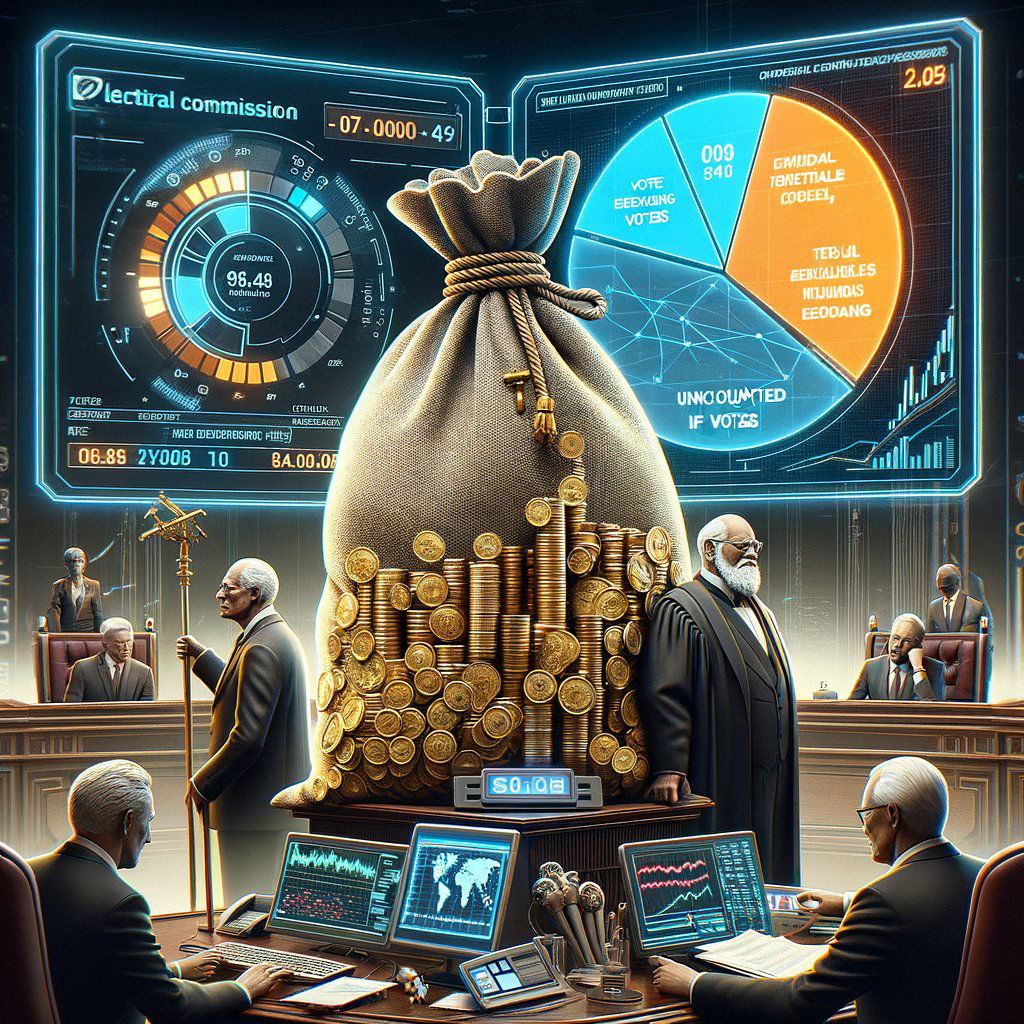Image created by AI
Electoral Court's Costly Directive to MK Party Over Election Results Dispute
In a recent turn of events, South Africa's political landscape witnessed yet another controversy involving the MK party and its allegations surrounding the 2024 national and provincial election outcomes. After a seesaw legal battle, the Electoral Court has directed the MK party to shoulder the expenses incurred by the Electoral Commission of South Africa (IEC) due to the party's withdrawal from its initial application to challenge the election results.
At the heart of this issue lies the MK party’s unwavering pursuit to invalidate the general election, which took place on May 29, amidst assertions of “irregularities” and calls for President Cyril Ramaphosa to set a new date for elections within a three-month time frame. Despite bold accusations claiming that over 9.3 million votes were not adequately accounted for, the party faces a setback with the court’s decision regarding cost payments.
The developments in this legal saga unfolded rapidly when the MK party filed an urgent application on 19 June, alleging election rigging and propelling the case towards a hearing set for 29 July. However, the party soon entered a notice to withdraw the application, prompting the IEC to oppose what it perceived as a strategy to delay and abuse the litigation process.
On 5 August, the IEC stressed to the Electoral Court that the MK party's fluctuating stance, resulting in substantial legal expenses, was part of a pattern of obstructive behavior in past legal dealings between both parties. The IEC's firm position prompted it to seek prevention measures against the MK party from relaunching a similar case without the court's prior consent.
However, Acting Judge Esther Steyn, in her judgement, considered the IEC’s proposal to restrict the MK party's future applications a severe measure, touching upon the MK party's constitutional right to access justice under Section 34. She postulated that while the MK party should be allowed to withdraw its application, it should also be held accountable for the legal costs incurred due to its actions.
The court proceedings centered on the principal that the party, being unsuccessful in its litigation endeavors, should compensate the IEC on an attorney-client scale. Steyn's judgement acknowledged the peculiarities in the MK party's conduct but stopped short of classifying it as abusive.
Despite the court's decision and the implied financial implications, the pursuit for justice—or what the MK party deems as justice—seems relentless. Jacob Zuma, the former president, during a media briefing, reinforced the party's stance, reiterating the claim of skewed election results and ensuring the continuation of their legal efforts.
With South Africa's political stability hinging on the integrity of its electoral processes, the ongoing tussle between the MK party and the IEC has raised significant questions about the sanctity of the country’s democratic fabric.










